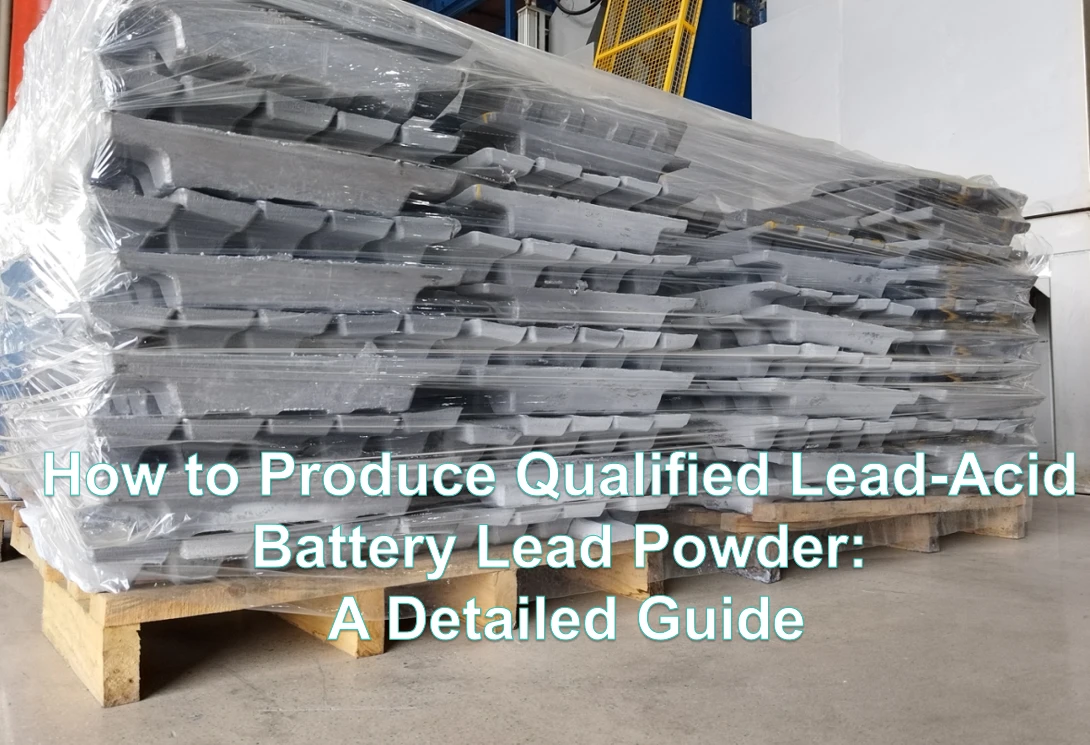
If you want high-quality batteries with long life and low energy consumption, you must begin manufacturing with high-quality raw materials. Among other main ingredients, lead powder is an important ingredient that forms the core of lead-acid batteries powering wide applications, including automobiles. This guide will explore why it’s vital to produce high-quality lead powder for battery manufacturing with stringent purity control requirements that ensure optimal battery performance.
Importance of Producing High-Quality Lead Powder
Lead-acid batteries have been a dependable source of energy storage nowadays and are versatile due to the growth in manufacturing technology. However, its performance is intricately linked with the quality of the lead powder used in its production since the high-quality lead powder is characterized by its excellent purity and consistency as well as uniform particle size.
In manufacturing batteries, lead powder acts as the basic material in anodes and cathodes, directly influencing the capacity, retention of charge, and life of the battery. Adding substandard lead powder will bring numerous problems, including lowered battery efficiency, higher self-discharge rates, along with premature failure of the battery itself. Furthermore, high-performance batteries having long cycle lives are becoming a necessity for industries adopting renewable energy sources for this purpose. Producing superior quality lead acid batteries using good quality lead powder is thus a growing market requirement.
Specific Lead Powder Purity Control Requirements
Maintaining the purity level of the lead powder whilst manufacturing batteries is a must. JYC’s lead has attained an astonishing purity level, equivalent to 99.997%, which is on par with what is achieved by using LEAD. This high purity makes sure that these leads produce outstanding electrical performance, corrosion resistance, and also long life for our produced lead-acid batteries.
Such purity levels can only be realized by the manufacturers undertaking rigorous quality control protocols within the lead powder production process. Raw materials are carefully sourced, precisely handled and stored together with refined techniques that refine the raw material to very high levels. Deficiencies in the performance of a lead-acid battery can be substantially compromised by contaminants such as impurities and trace elements. Thus, strict quality checks and purification methods are used to achieve purge these unwanted elements from them.
Production of Qualified Lead-Acid Battery Lead Powder
The procedure for producing lead powder is a set of steps meant to eliminate inconsistencies and impurities that may occur during the course. Normally, it begins with obtaining the lead from reliable suppliers with the highest purity raw materials. The lead goes through smelting, refining, and alloying processes to achieve desired chemical composition and purity level. These steps are closely monitored alongside advanced analytical techniques to confirm lead quality.
The lead that has been refined and alloyed is then converted into lead powder through a controlled method of milling. The particle size distribution must be carefully managed to ensure uniformity, facilitating even distribution within the battery electrodes. This keen attention to detail at every production stage sets qualified lead-acid battery lead powder manufacturers such as JYC apart.
Conclusion
High-quality lead powder production is important in the context of lead-acid battery production. Purity and uniformity in lead Powder directly influence battery performance, length of customer satisfaction, and ultimately make or break for the manufacturer. Beacons of excellence like JYC maintain this level through manufacturers such as our commitment towards maintaining the highest purity levels via hard work coupled with adherence to stringent purity control requirements coupled with as a manufacturer meticulousness in producing processes.



